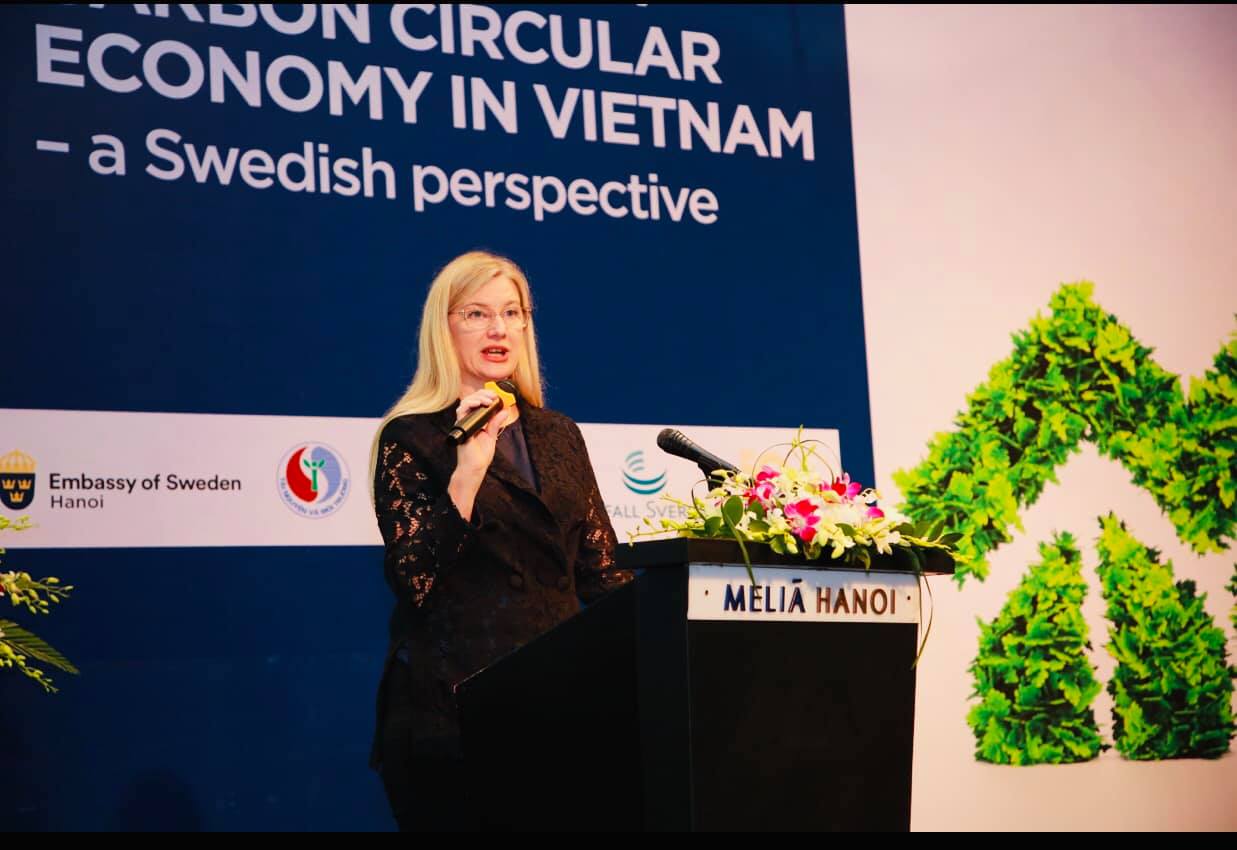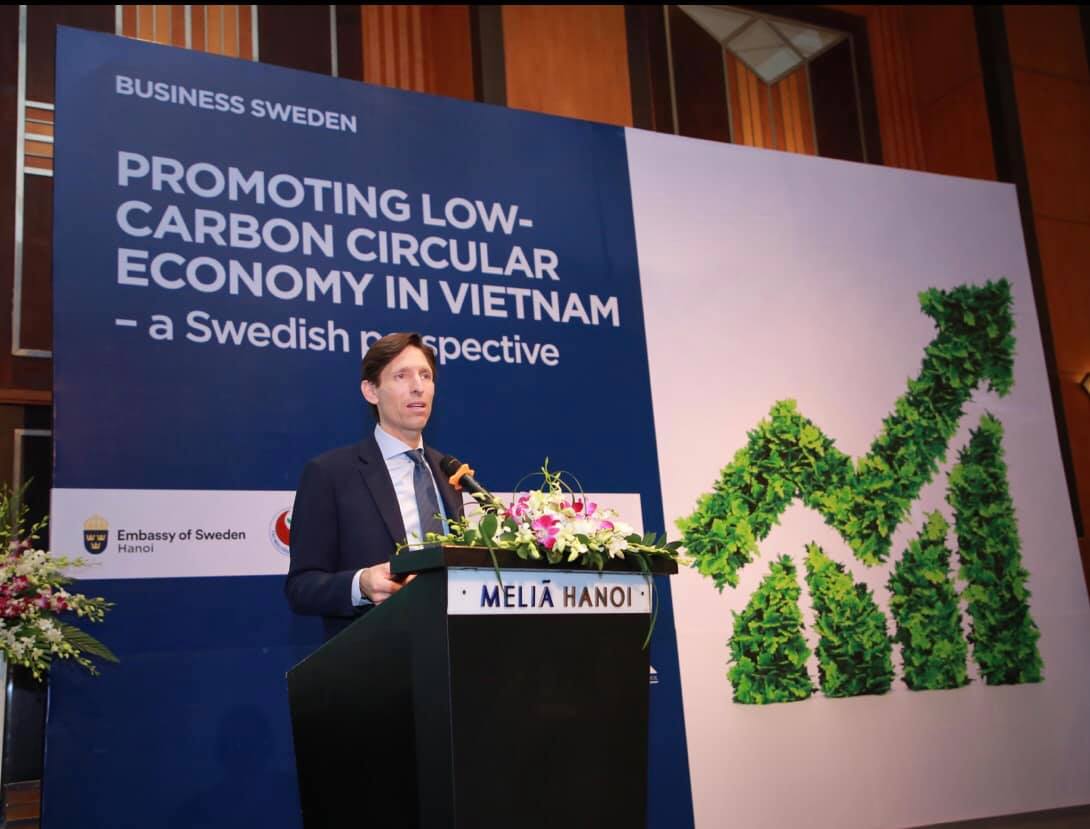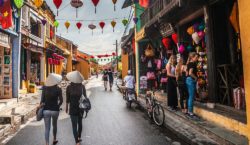
The Embassy of Sweden together with the Vietnamese Ministry of Natural Resources and Environment (MONRE), and the Hanoi People’s Committee hosted a “Promoting a low-carbon circular economy – a Swedish perspective” seminar at Melia Hotel Hanoi on 12th November 2019.
The discussions were focused on Vietnam’s policies and vision in promoting the circular economy, successful case studies in Sweden and in the region, as well as enterprises’ approach to access capital for implementing this model.
“In a circular economy, we see everything as a resource for something else, waste becomes a resource,” Swedish Ambassador to Vietnam Ann Måwe said in her speech.
“Circular economy is good for both consumers and businesses. Companies that are moving in this direction have proved that recycling used products can be more cost effective than creating them from scratch.”
“As a result, production costs are reduced, so that the sale price is also lowered, thereby benefiting the consumer. I hope this is inspiring for Vietnamese businesses,” .
“Sweden has made great progress in its recycling revolution over the past two decades. The percentage of recycled waste by households in Sweden has increased from 38% in 1975 to 99% today.
We would happily share our experiences with Vietnam”, Ambassador Måwe added.
Rapid population growth and industrialization has placed Vietnam among the ten countries worldwide that are most affected by air and plastic pollution.
The amount of waste in the country is expected to double in less than 15 years. Meanwhile, less than 10% of waste in Vietnam is recycled and a significant amount of waste ends up directly in landfills or in the ocean.
Vietnam ranks 17th in the world and 5th in Asia for ocean plastic waste pollution, releasing more than 500,000 tons per year into the ocean.
Sweden, at the other end of the spectrum, is one of the world’s leading countries in waste management and recycling. As a large amount of waste is recycled and used for other purposes such as biogas and energy, Sweden is currently a waste importer, importing more than 2.3 million tons of waste per year.
The transformation from conventional economy to circular economy enables Scandinavian and other Nordic nations to deal with scarcity of natural resources and environment pollution.
The seminar topics covered the evaluation of practical waste management in Hanoi, the Swedish waste collection and recycling model, and especially sharing about challenges and opportunities from a Vietnamese recycler’s perspective.

Tetra Pak – the Swedish food processing and packaging company – shared the company’s journey towards a low-carbon, circular economy through environmental protection initiatives. In particular, its key products – carton packages – are made from Forest Stewardship Council certified cartons. The company has recently started field testing paper straws for beverage products in Europe, and is the first carton packaging company to launch paper straws in the region.
“Today, we should not think about global environmental issues such as climate and waste in isolation. We need to look at them together,” Mr. Jeffrey Fielkow, Managing Director, Tetra Pak Vietnam announced on his speech.
“To achieve this, we must complete the circular economy so it takes into account not just recycling and reuse but also the carbon impact of raw materials and manufacturing.”
“This means looking beyond end-products to address the full impact of our businesses, from sourcing raw materials to recycling used products.”
“At Tetra Pak, we are working to achieve this by delivering solutions with the lowest carbon footprint and highest efficiency, minimizing the environmental impact on our own operations and working with partners towards circularity for our products,” Mr. Fielkow said.
The seminar drew the participation of representatives from government bodies, NGOs, institutes, universities, organizations and enterprises actively involved in circular economy such as Tetra Pak, Food Industry Asia, PRO Vietnam, Swedish Waste Management Association and Circulate Capital and many more.




